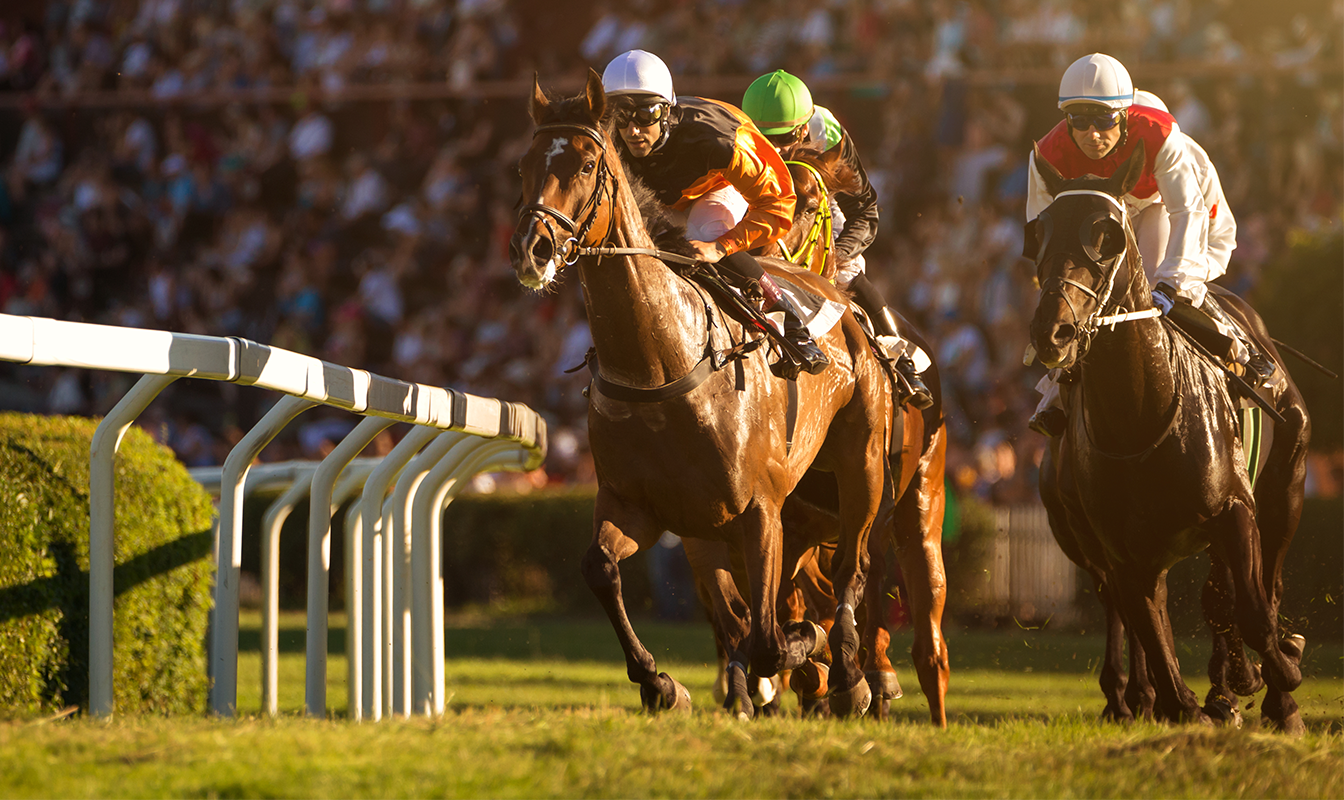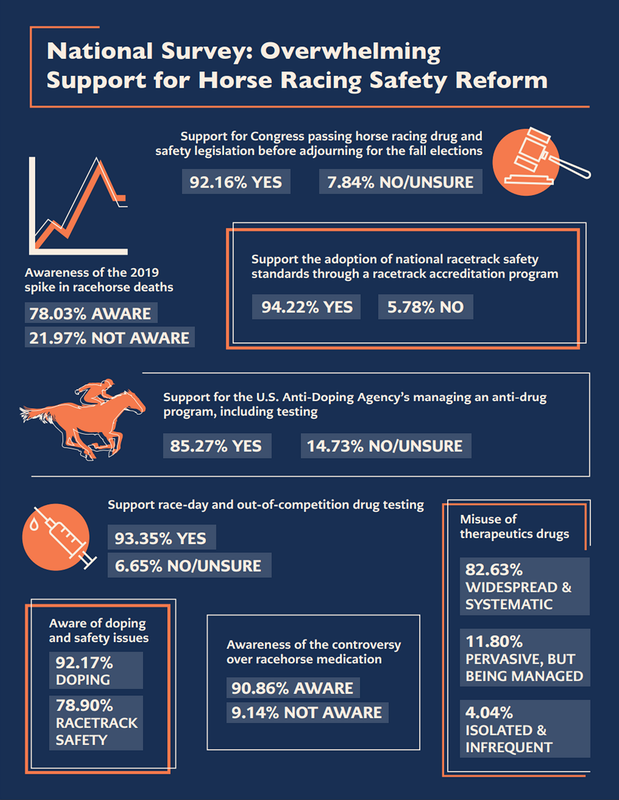On Monday (5/17), New York Racing Association President & CEO Dave O’Rourke announced the temporary suspension of famed trainer Bob Baffert from entering horses in races and occupying stall space at Belmont Park, Saratoga Race Course, and Aqueduct Racetrack. The suspension comes after Mr. Baffert publicly acknowledged last week that Kentucky Derby winner Medina Spirit tested positive for betamethasone, a banned substance in horse racing that would trigger a disqualification and a loss of purse money. This is the fifth time a horse trained by Baffert has tested positive for a banned substance in the past year. Despite Medina Spirit’s positive test, the horse was still able to compete (and show) in the 2021 Preakness Stakes.
The positive test has created a swirling scandal around the sport, and the shockwave will impact how viewers see the Triple Crown events for years. The onus is now on the National Thoroughbred Racing Association (NTRA), which in its own words commits to “serving the industry as a consensus builder around solutions to problems of national importance to the horseracing industry,” to solve its biggest problem yet.
WHAT WE KNOW:
Medina Spirit’s positive drug test is a big enough incident on a big enough stage that it calls into question the integrity of not just the owner, but the sport.
With Bob Baffert now tallying 30 total drug violations over his training career, some fans have compared him to a sort of Lance Armstrong figure whose prominence and domination of the sport creates a cloud of doubt around any champion that comes after them. If the horse racing industry has any hope of surviving, those both inside and outside the sport have to believe that the odds are fair. If that doubt permeates too deeply, fans will likely become more hesitant to bet on or attend events.
Up to this point, horse racing standards have largely been put into place through a fragmented system by which each state can freely accept or decline certain regulations for their own race tracks, it is the responsibility of the NTRA’s leadership to clearly communicate its stance on drug monitoring, even if it cannot directly enforce it. As the most well-known advocate for the sport, any owner, trainer, or affiliated horse racing association would be acting in the sport’s best interest to align itself with other members of the coalition so there is a level playing field going forward.
Undermining the integrity of the sport puts one of its biggest draws at risk: sports betting.
Horse race betting rules are very clear when it comes to the 2021 Kentucky Derby’s unique finish: If your horse is disqualified immediately after a race, you lose your bet. But if the disqualification comes a day, a week, or even later, the bet stands. Winnings – and losses – remain tied to the bettor.
In response, many bettors pledged not to wager on the Preakness Stakes the following week if Baffert had a horse in the race, which he in fact did. The immediate financial impact of bettors distrust is not yet known, and with the potential for legal proceedings around Medina Spirit’s win to take years, those deciding whether to wager on future events won’t quickly forget feeling as though they have been burned.
There are efforts underway to get this fixed operationally.
Just 5 months before the 2021 Kentucky Derby, U.S. President Donald Trump signed the Horseracing Integrity and Safety Act (HISA) into law, allowing the U.S. Anti-Doping Agency to oversee a national drug-testing program for horse racing as opposed to individual state racing commissions. The law, meant to ensure “clean competition for equine athletes,” has been applauded by many, including the Horses for Life Foundation.
Although the legislation doesn’t take effect until July 2022, the USADA and the NTRA would benefit from proactively incorporating content around the testing and enforcement process to ingrain an understanding of the steps that are being taken to safeguard horse racing’s integrity on a race-by-race basis. Summer 2020 is now a deadline for horse racing stakeholders to do some much-needed “house cleaning” before the Triple Crown prestige is tainted further.
LEARNING FROM PAST EXAMPLES:
Crises on a national stage sometimes grow beyond the realm of the individual sport, in such a way that it must be compared to some of the largest scandals across the sports landscape. The NTRA would be hindering itself to only look to past scandals in horse racing for guidance, and instead must examine how external individuals, teams, and leagues were impacted by the most significant cheating debacles of their time. In each of the examples below, the league involved was willing to accept and act on the short-term damages they faced to promote the long-term legitimacy of the sport.
Lance Armstrong Scandal
Lance Armstrong was widely recognized as the greatest cycler in the world before multiple doping allegations clouded his accomplishments. Following the allegations, cycling saw increased speculation around doping and the overall integrity of the sport. Even following the 2020 Tour de France, active and retired riders expressed doubt around the dominance of certain teams, suggesting that performance-enhancing products were again at play. Four-time Tour de France winner Chris Froome spoke to the lasting impact of Armstrong’s scandal, stating that “you have to answer the same questions every year from sceptics, those who don’t believe any achievement.”
Consideration: Oftentimes, making a public example of individuals who have significantly harmed the reputation of the sport can serve as a deterrent to future competitors. In this example, Lance Armstrong was stripped of his seven Tour de France wins and was barred from Olympic sports for life.
MLB Steroids Scandal
A lack of regulation around performance-enhancing drugs became so entrenched in Major League Baseball that there is an entire 20-year period dubbed as “The Steroids Era.” The MLB tried and failed many times to rid the game of illicit substances, but in 2007, a 20-month investigation led by U.S. Senator George Mitchell identifying more than 85 current and former players who used PEDs was released. Then-MLB commissioner Bud Selig was firm on his response to the report, stating that the report “is a call to action, and I will act.” To this day, there are fans who don’t want to see anyone included in the “Mitchell Report” inducted into the Hall of Fame.
Consideration: Involving a respected third party, in this case Senator Mitchell and his team, to conduct the investigation promotes a willingness to accept short-term consequences in exchange for a lasting perception of legitimacy in the league.
Russian Olympics Scandal
In 2015, an independent commission set up by the World Anti-Doping Agency confirmed the widespread use of performance-enhancing drugs and blood doping by Russian track and field athletes, which were encouraged and covered up by coaches, doctors, and some state officials. Originally, Russian officials openly denied the allegations, calling them groundless until more evidence was presented. After the WADA suspended the implicated facility’s accreditation, Putin vowed that Russia will launch its own internal investigation, stating that “a sporting contest is only interesting when it is honest.” The original four-year ban has since been halved, but will still bar Russia from hosting or bidding for major sporting events until December 2022.
Consideration: Relying on a centralized body for oversight and judgment promotes a trusting atmosphere where competitors feel that they are held to consistent standards. In the case of horse racing, the USADA can be this centralized authority when enaction begins in 2022. Including messaging around the USADA’s being a trusted and respected source of oversight will bolster this “even playing field” mindset among participants.


